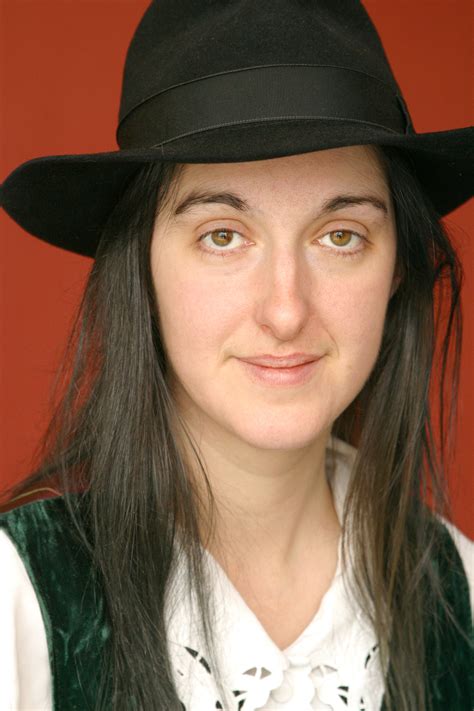A Quote by Frances Hardinge
Mosca and Saracen shared, if not a friendship, at least the solidarity of the generally despised. Mosca assumed that Saracen had his reasons for his persecution of terriers and his possessive love of the malthouse roof. In turn, when Mosca had interrupted Saracen’s self-important nightly patrol and scooped him up, Saracen had assumed that she too had her reasons.
Related Quotes
Tanith frowned. Did people still go on DATES any more? She was sure they did. They probably called it something different though. She tried to think of the last date she'd been on. The last PROPER date. Did fighting side by side with Saracen Rue count as a date? They ended up snuggling under the moonlight, drenched in gore and pieces of brain - so it had PROBABLY been a date. If it wasn't, it was certainly a fun time had by all. Well, not ALL. But she and Saracen had sure had a blast.
Mosca said nothing. The word ‘damsel’ rankled with her. She suddenly thought of the clawed girl from the night before, jumping the filch on an icy street. Much the same age and build as Beamabeth, and far more beleaguered. What made a girl a ‘damsel in distress’? Were they not allowed claws? Mosca had a hunch that if all damsels had claws they would spend a lot less time ‘in distress’.
The tent in which she first met him had smelled of blood, of the death she did not understand, and still she had thought of it all as a game. She had promised him the world. His flesh in the flesh of his enemies. And much too late had she realized what he had sown in her. Love. Worst of all poisons.
Jacks stood beside her. Instead of saying anything, she felt his fingers trace up her palm and then lace into hers. He had taken her hand before, quickly and for functional reasons—usually to drag her off to someplace she didn’t want to go—but he had never held her hand. Not the way couples did in parks or lovers did in old movies. Maddy stood there and felt the heat of his grip. It made her think of that first night in the diner, when they had talked about pretend memories and she had felt so connected to him.
She had taken him for granted, she thought with surprise and shame, watching the flickering candlelight. She had assumed his kindness was so natural and so innate, she had never asked herself whether it cost him any effort. Any effort to stand between Will and the world, protecting each of them from the other. Any effort to accept the loss of his family with equanimity. Any effort to remain cheerful and calm in the face of his own dying.
He lifted his gaze to the framed photograph of Tanya and him taken on their wedding day. God, she had been lovely. Her smile had come through her eyes straight from her heart. He had known unequivocally that she loved him. He believed to this day that she had died knowing that he loved her. How could she not know? He had dedicated his life to never letting her doubt it.
When he thought of her, it rather amazed him, that he had let that girl with her violin go. Now, of course, he saw that her self-effacing proposal was quite irrelevant. All she had needed was the certainty of his love, and his reassurance that there was no hurry when a lifetime lay ahead of them. Love and patience- if only he had had them both at once- would surely have seen them both through.
He had put his hand up in class, a declaration of existence, a claim that he knew something. And that was forbidden to him. They could give a number of reasons for why they had to torment him; he was too fat, too ugly, too disgusting. But the real problem was simply that he existed, and every reminder of his existence was a crime.
Strangely, what pierced his heart and mind most sharply was not the memory of her lips under his at the ball, but the way she had leaned into his neck, as if she trusted him utterly. He would have given everything he had in the world and everything he would ever have, just to lie beside her in the narrow infirmary bed and hold her while she slept. Pulling away from her had been like pulling his own skin off, but he'd had to do it.
































